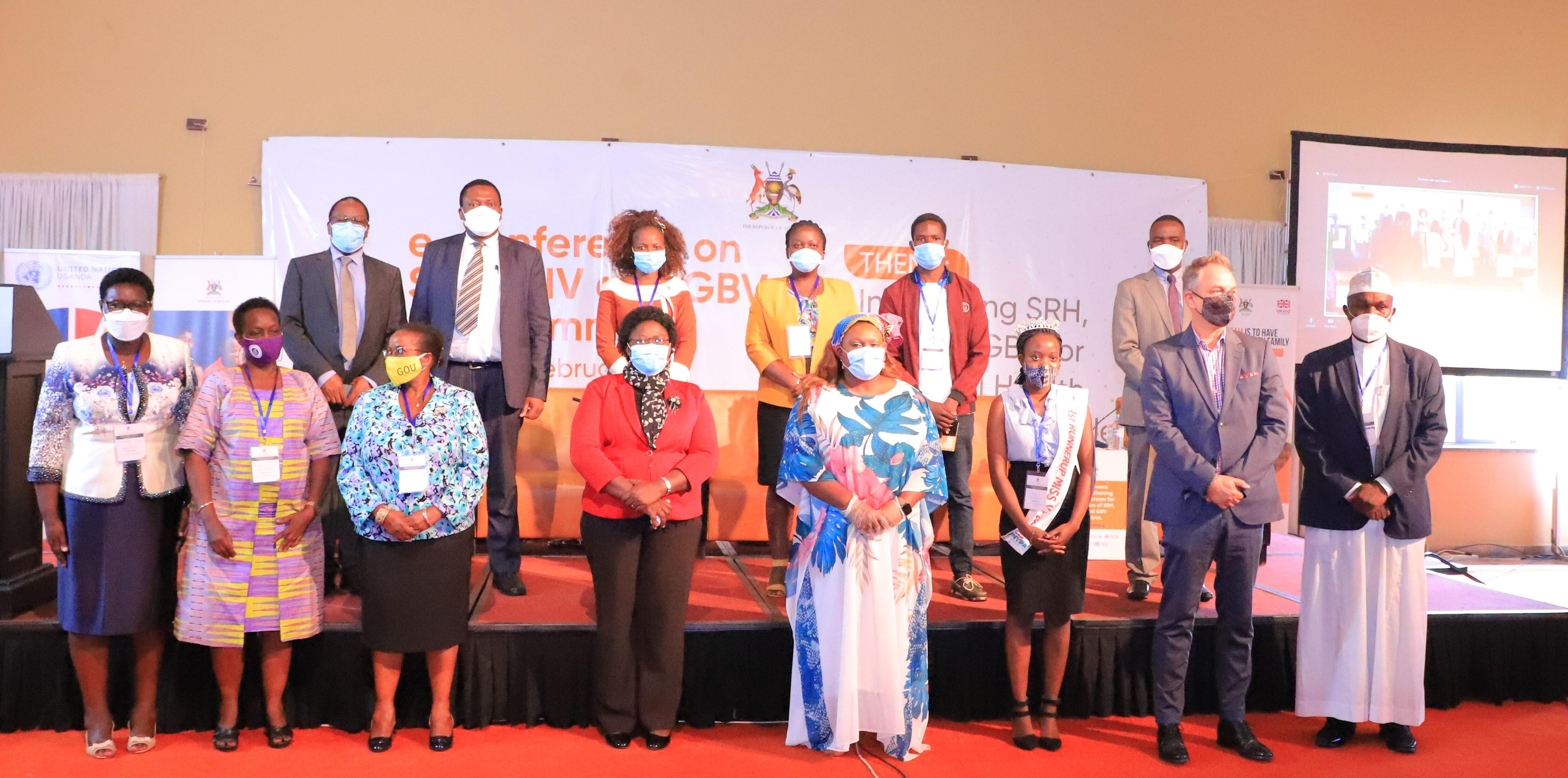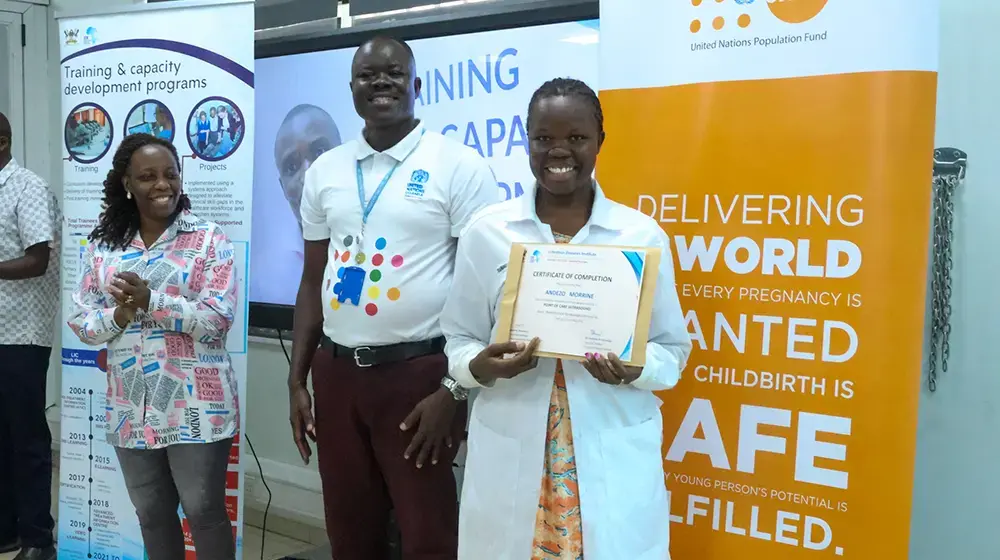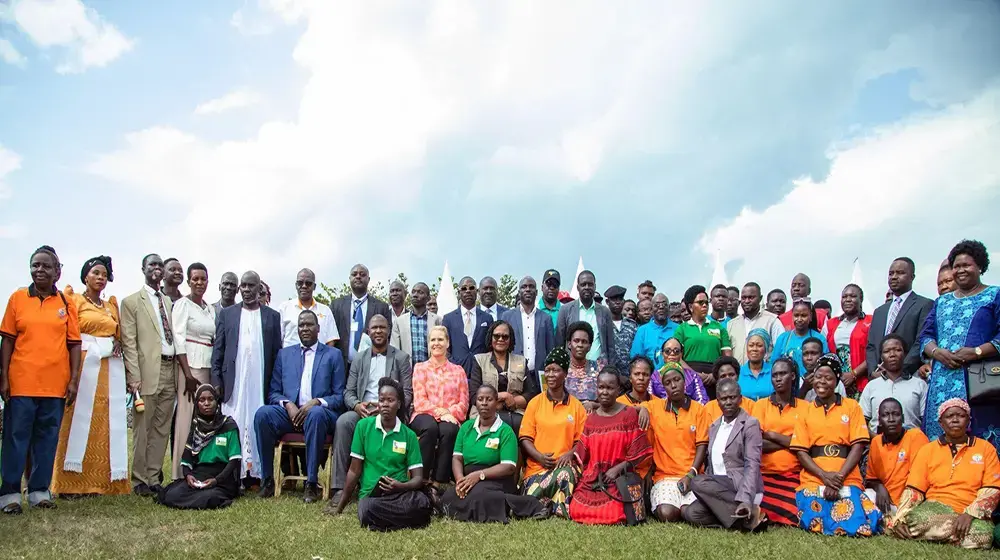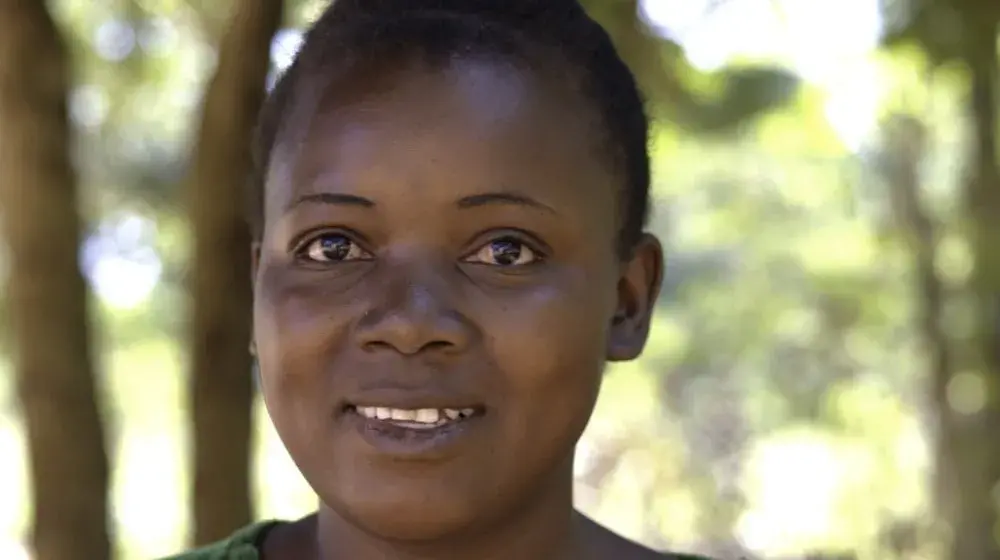Under the theme ‘Integrating Sexual Reproductive Health (SRH), HIV and Gender Based Violence (GBV) services for Universal Health Coverage. My Role’ the Ministry of Health in partnership with UNFPA organized a two (2) - day National e-conference that was officially opened by the Minister of State for Primary Health Care Hon. Dr. Joyce Moriku. She was joined by Rosa Malango the UN Resident Coordinator, Alain Sibenaler the UNFPA Country Representative and Daniel Johansson Arnhem from the Swedish Embassy.
The National e-conference held from 4th to 5th February was mostly virtual and partially physical with attendance of over 500 SRHR Practitioners representing Government, Development Partners, the Academia, and Civil Society Organizations (CSOs) in Uganda.
While giving her opening remarks, the UN Resident Coordinator addressed the issue of COVID-19 having devastated communities and economies and noted that it however provided an opportunity to address the urgent need for universal health coverage in Uganda. “If achieved, there will be affordable, high-quality services leading to better health for everyone including children and women. Ugandans will be more educated and productive to the economy and families will be protected from poverty-causing health costs.” She added.
Young people presented a paper with their commitments that was developed from the pre-youth conference which recommended meaningful engagement of young people at all levels in decision making so that they are empowered to make informed choices regarding their SRHR and play a vital role in determining their destiny and making a meaningful contribution within their expertise.
As part of experience sharing during the e-conference, SRH practitioners presented abstracts and poster presentations of the unique interventions during the COVID-19 period. This was aimed to share evidence of solutions or attempted solutions that could cause a shift from what is being done to what needs to be done.
During the e-conference categorized breakout sessions and panel discussions, the experts shared experiences and highlighted the relationship between SRHR and GBV as mainly through intimate relations that are influenced by socio-cultural factors including gender power imbalances. Socio-cultural factors such as the unfavorable economic position of women, child marriages, Female Genital Mutilation (FGM) and the inability to insist on condom use make most Ugandan women unable to negotiate the timing of sex and the conditions under which it occurs. Thus, rendered powerless to protect themselves against HIV infection and other sexually transmitted infections, and unwanted pregnancies.
Whilst giving closing remarks at the e-conference; Her Excellency, Karin Boven, the Ambassador of the Embassy of the Kingdom of Netherlands to Uganda commended the Government of Uganda for the progress and achievements made to address SRHR, HIV and SGBV. She also acknowledged the need to secure sexual and reproductive health for all, and to ensure women and girls are able to live a life free of violence. “This means we need to step up our efforts, be critical about our strategies, and collaborate to have the highest impact on the lives of girls and boys, women and men.” Ambassador Boven added.
As part of the e-conference closing; Alain Sibenaler, the UNFPA Country Representative, emphasized the importance of accountability to the communities served, the Government, and Development Partners amidst the COVID-19 pandemic. Alain further noted: “The issue of safeguarding the reproductive rights of our young people who have experienced sexual violence during the period when we have schools closed as a measure to prevent the spread of COVID-19. Ladies and gentlemen, teenage pregnancies are a gross violation of human rights and a form of gender-based violence.”
The young people, CSOs, Development Partners, and the Ministry of Health committed to working together in their capacities to foster the integration of SRHR, GBV, and HIV in fulfillment of the SRH rights of young people which is central in the development and will enable Uganda to achieve ICPD commitments and SDGs 3 and 5
In conclusion of the e-conference, Hon. Dr. Joyce Moriku Kaducu the Minister of Health for Primary Health Care stated that going forward, the Ministry of Health will focus on improving access to high quality Sexual and Reproductive Health services for all ages to strengthen coordination mechanisms for quality delivery of integrated Health Services at all levels. She urged everyone to ensure that there is a collective responsibility to make a positive difference if we are to succeed in the integration of SRH services.
By Josephine Zhane





